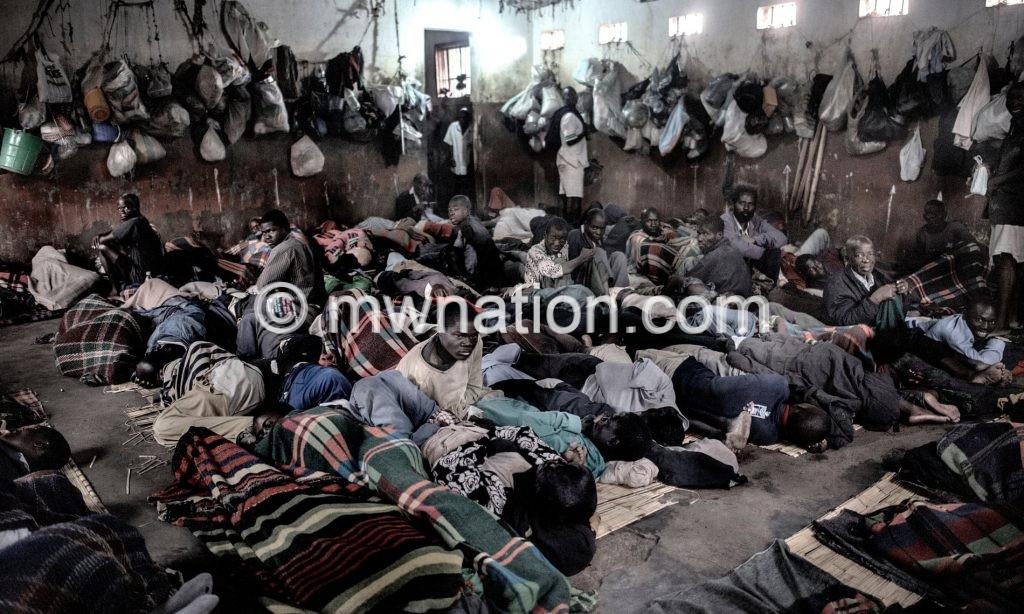Malawi’s death penalty comedy
Although the death penalty is still in the statutes, it is almost three decades since a convict was sent to the gallows.
Due to the secrecy surrounding the execution process, there is no precise information of the last known case of execution in the country but much of the jurisprudence indicates it was in 1992 during the reign of founding President Hastings Kamuzu Banda.

All presidents after Kamuzu have not signed the death warrant following mounting pressure from human rights organisations including Amnesty International to abolish capital sentence.
Currently, figures show there are 27 inmates on death-row in the condemned convicts section at Zomba Central Prison on a suspenseful wait with no access to interaction with fellow convicts.
Over the years, several death row convicts have had their sentences reviewed or commuted to life imprisonment. Having gone through the Periodic Review at the United Nations, government has also committed to review all death sentences. This has revived calls for the abolition of the law.
Social justice activist Alexious Kamangila in an interview on Wednesday the country’s failure to enforce the law for nearly three decades was a clear indication of the loss of the law’s “saltiness or usefulness.”
Kamangila, who works for Reprieve,a UK-based firm that leads advocacy, research and legal representation for death-row inmates appeals, argued that if the country had stayed for 29 years without a person being executed, it meant there was no need for the death penalty and it had to be abolished.
“We have in effect lived without the death penalty for 29 years, hence we should proceed to abolish it. Keeping inmates on death row, just anxious as to when they would be executed, tortures them to death and kills their souls,”he said.
But a death row inmate who spent 23 years in prison told our sister paper The Nation in 2018 that he was taken to the gallows in 1993 alongside his friends but survived because the executor was tired on that day.
Kamangila said while taking the processes to abolish the death penalty, Malawi should adopt a De Jure Moratorium (as soon as possible bring a bill to abolish the death penalty) —adopt the optional second protocol to the International Covenant on Civil and Political Rights (ICCPR), commute all death sentences to prison sentences and increase funding to the Legal Aid Bureau for homicide quality legal representation.
“Judges should also be acquainted with International and Constitutional Law on Torture. Government should also take active efforts to end killings of people with albinism and empower them as opposed to using the death penalty as a hypocritical show of a strong stand when there is nothing on the ground,” he said.
Malawi has been making a lot of progress on human rights since the 2007 Kafantayeni versus Attorney General Case in which the Supreme Court of Appeal declared mandatory death sentence unconstitutional. Since then, Reprieve, the Malawi Human Rights Commission and a consortium of other organisations led the Resentencing Project that saw cases of 156 inmates being re-heard and none of them was resentenced to death.
Between 2016 and May 2019, no court in the country issued a death sentence but since June 2019, the courts have meted out 12 death sentences with a possibility of 50 more death sentences in on-going cases.
Legal Affairs Committee of Parliament chairperson Yusuf Nthenda said on Thursday in an interview the fact that no President had signed a death warrant “practically means the country already moved away from imposing death penalty.”
“So what we need now as a nation is to completely abolish the statute. It should not appear anywhere in our books of laws. We appreciate it’s a process but we have a lot of people advocating for this. They just need full support,” said Nthenda.
However, the law maker said as a committee they had not received anything to do with death penalty abolishment and as such their hands are tied.
Mostly, our work revolves around looking at suggestions that have been referred to the committee. They don’t emanate from us. They start from elsewhere either as private members bills or government bills.
“But at this moment what is crucial is for someone to move us into coming up with a law that abolishes the death penalty which at the moment we don’t have as a committee,” said Nthenda.
On his part, human rights advocate Gift Trapence said the law was irrelevant that “is why government can’t even implement it, hence the need for [its]urgent repeal.”
“Most countries even in Africa have repealed such laws because they are not in line with human rights principles. Executing people who have killed others is not justice but rather revenge. Any State that promotes execution commits the very same violent crimes they condemn,” said Trapence, chairperson of the Human Rights Defenders Coalition.
The four previous administrations of Bakili Muluzi, Bingu wa Mutharika, Joyce Banda and Peter Mutharika have not been keen to abolish the death penalty.
In 2018, former president Peter Mutharika called for a national dialogue on whether the country should implement the death penalty on individuals convicted of murder.
But Kamangila observed the reason was politicians get scared and usually shun away from taking bold steps on issues that seemingly are “controversial”.
Justice minister Titus Mvalo and Infrmation minister Gospel Kazako were contacted, but did not pick up their. They also did not respond to our WhatsApp messages.
But speaking to the Human Rights Council in November last year in an interactive dialogue for the Universal Periodic Review of Malawi, Mvalo said the country would continue exercising an existing moratorium (stopping death penalty in practice) and also continue reviewing the sentences of convicts and commute them accordingly.
On his part, President Lazarus Chakwera’s press secretary Brian Banda said the President will express no view on the matter until he gets the position of the Malawi Law Society, the Ministry of Justice and representatives of the Malawian people in the National Assembly.





